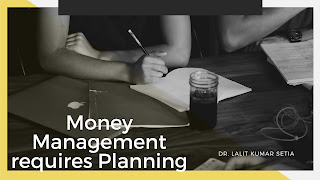Automation and Using Information Technology
Information Technology is taking its place in every field of life and Financial Management to improve Governance at workspace requires to be reformed with the help of using Gadgets, Software, and the latest technological tools.
How it helps in improving Governance
Software for improving Management
Today in the era of technology, automation is everywhere. The time-consuming complex processes are being replaced with automated software-based processes. The chances of manual errors were reduced significantly. It will not be surprising if the procurement through GeM becomes automated in near future on the basis of the level of inventory set as a minimum reserve in the storeroom of a Government office. How to design software to support the management, in Haryana, the modules are prepared and implemented in an amazing way to enhance the efficiencies. A course is designed to inculcate the same skills in Officers/officials so that the time and efforts can be saved and the resources are fully utilized. The departments which are not using software and modules; are suffering from inefficiencies.
During the Covid-19 times, most of the organizations decided to work from home, and innovative ways were incorporated to perform the organizational activities. The software not only streamlines the organizational processes but also makes the employees realize more job satisfaction from their efforts. The employees also learn to manage time more effectively and the use of virtual meetings, virtual training, and software-based outcomes can easily measure their real-time performance.
It's time to be well managed and utilize the resources more effectively. How to do it, require skills which I inculcate usually in my classes. A new course designed for the Officers / Officials of the Government of Haryana:
Course on Digitalization of Service Records (HRMS) and Records Management
Haryana State Training Policy, 2020 is committed to equipping all functionaries of Government with adequate knowledge and skills, bringing about positive attitudinal changes, and building capacities to enhance performance.
The main objective of the above course is to build and enhance the capacities of officers to digitalize the service records as per the latest guidelines of the Haryana Government on implementing Human Resource Management System (HRMS) and also to maintain the records properly with weeding out old records as per rules of Government.
What needs to be computerized in Office?
The Accounting, Invoicing and tax compliance-related procedures are already computerized in most of the offices relating to Boards and Corporations of Government. The public sector undertakings (PSUs) are facing competition from the private sector players, need to automate the functions for improving efficiency to a great extent. I have designed courses especially to sharpen the skills in the following areas:
a. Use of Technology to automate compliance of financial rules in managing expenses:
It is possible to use Google forms for ensuring a proper system of approvals in each office and for automate purchase orders, prepare invoices, make reimbursement of expenses easily, and also for posting entries or booking expenditures.
b. Reconciliation of accounts to trace embezzlements
Tracking expenses is easy but when the number of expenses every day increases to a significant level, it becomes difficult to trace and track any file or case relating to an expense. The cloud-based solutions can easily be used for automatic reconciliation of accounts and giving the red signals to the exceptions for consideration of the executives.
c. Business Applications in Government Offices
The Government has adopted a Double Entry System in most of the departments working under the direct control of the Government. The double entry system is also used in business organizations of the private sector. Whatever business applications with automation are used in the private sector, the same business applications can be adopted in Government offices. For example, the private organizations use Customer Relationship Management (CRM), the government organization may design and use Citizen Relationship Management (CRM) with rating each citizen of the state or country.
How to design software for Government organizations:
The National Informatics Centre is the primary organization for designing specific software in Government offices. Four things should be taken care of while giving directions to the NIC for designing a specific software i.e. Estimated Expenditure or Budget Availability, No leakage of privacy or security of confidential information, the feature of the software to scale it up for large level applications, and information is stored either on systems of NIC or on clouds.
It is fact that the use of automation software increases the efficiency in functions but everything cannot be computer-based.

















